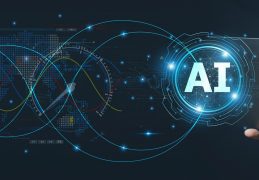 The Role of Artificial Intelligence in Modern Academia
The Role of Artificial Intelligence in Modern Academia
In the ever-evolving landscape of education, technology stands as a driving force, reshaping traditional paradigms and opening new avenues for learning and research. One of the most transformative technologies making waves in academia is Artificial Intelligence (AI). As we navigate the 21st century, understanding the importance of AI in modern academia becomes paramount.
How AI Enhances the Learning Experience
AI is not merely a buzzword but a catalyst for innovation, efficiency, and unprecedented insights. In education, AI is a powerful tool that enhances various facets of the learning experience. One of its key contributions lies in personalized learning, as AI algorithms can analyze student performance data, identify strengths and weaknesses, and tailor educational content to meet specific needs. Artificial Intelligence fosters a more engaging learning environment and ensures students can progress at their own pace.
AI’s Impact on Academic Research
Moreover, AI-driven tools are revolutionizing the way we approach research. The sheer volume of data available today can be overwhelming, but AI excels at processing and analyzing vast datasets at incredible speeds. This capability accelerates the research process, enabling academics to draw meaningful conclusions and uncover patterns that may have remained hidden in traditional methods. From genomics to social sciences, AI is a game changer, propelling us toward once-unimaginable discoveries.
Improving Collaboration in Academia with AI
Collaboration is another area where AI shines. In academia, collaboration is the lifeblood of progress. AI facilitates seamless collaboration by automating routine tasks, allowing researchers to focus on more complex aspects of their work. Whether it is literature reviews, data collection, or even drafting initial manuscripts, AI’s contribution frees up valuable time and resources, fostering a culture of interdisciplinary collaboration.
Ethical Considerations of AI in Education
Ethical considerations are integral to technological advancement, and AI in academia is no exception. Addressing concerns surrounding bias in algorithms, data privacy, and the potential for job displacement is crucial. Educators and researchers must actively engage in discussions about the ethical use of AI, ensuring that its deployment aligns with values of fairness and transparency.
Building AI Literacy in Higher Education
As institutions embrace the importance of AI in modern academia, it is essential to invest in developing AI literacy among students and faculty. Integrating AI education into curricula equips the next generation with the skills to navigate a technology-driven world. By demystifying AI and fostering a culture of continuous learning, educational institutions can empower individuals to implement trans-formative technology.
In conclusion, integrating AI into modern academia is not a choice but a necessity. Its impact on personalized learning, research efficiency, collaboration, and ethical responsibility underscores its significance. As academia stands at the crossroads of tradition and innovation, embracing AI is not just a step forward, it is a leap toward a future where knowledge knows no bounds.
Transform Your Future at Keiser University
Since 1977, Keiser University has been empowering students like you to achieve their career dreams. As one of Florida’s largest private, non-profit institutions, founded by Dr. Arthur Keiser and Evelyn Keiser, we’re committed to your success with:
- Over 100 degree programs from associate to doctoral level
- Recognition as the No. 1 university in the U.S. for Social Mobility by U.S. News & World Report (2023)
- Proud membership in the Hispanic Association of Colleges and Universities
- A legacy of excellence in education spanning more than 45 years
Don’t wait to start building your future. Contact Keiser University today and take the first step toward your dream career. Call Toll-Free: 888-KEISER-9 or Contact a Keiser Campus near you. Schedule your campus tour and learn more about our flexible programs, financial aid options, and career services support.






 The instructors at Keiser University impacted my life. They believed in my ability to become a great graphic designer, regardless of how I felt about my skills. KU helped to prepare me for the real world and got me to where I am today.
The instructors at Keiser University impacted my life. They believed in my ability to become a great graphic designer, regardless of how I felt about my skills. KU helped to prepare me for the real world and got me to where I am today.
